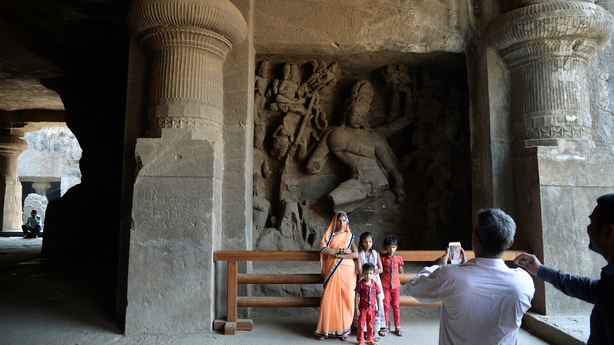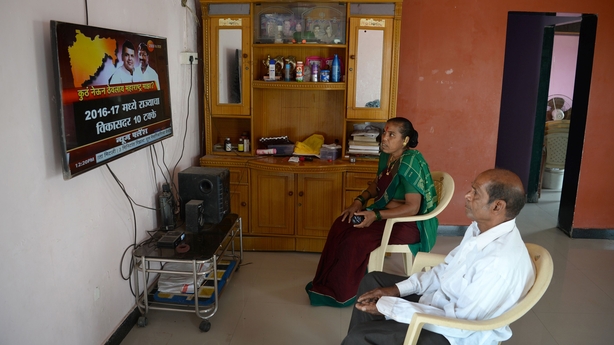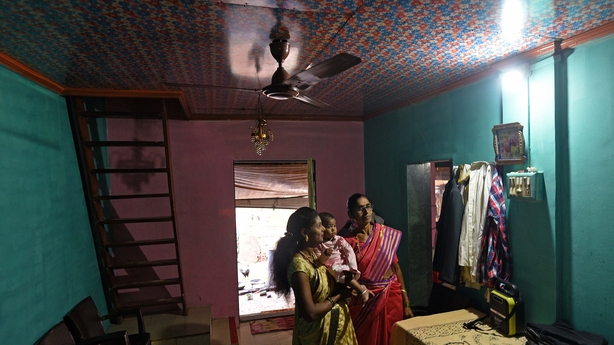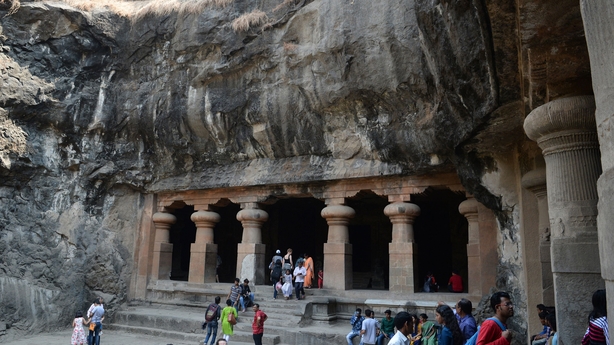Hundreds of villagers on the UNESCO world heritage-listed island of Elephanta have had mains electricity installed in their houses for the first time.
Local officials hope tourists, who take a short boat ride from the bustle of Mumbai to visit the island's famed fifth century caves, will now spend more time and money there, boosting local businesses and jobs.
"We've waited decades for this and we're so happy. Now I can watch all my favourite shows without any interruptions. The TV is almost always on," local resident Deepa Bhoir told AFP.
The island is renowned for its temple caves dating back more than 1,500 years and is home to around 1,200 people.

But despite living just 10km from India's financial capital, islanders have spent much of their lives without power.
"Lacking electricity was depressing and we faced numerous hardships," says Deepa's husband Sasuram.
He said that he and his wife would often sleep outside during the summer to try to keep cool.
"It was sweltering inside. We would lie and look at the glittering lights of Mumbai and long for electricity to live fuller and more satisfying lives," he said.

Residents used kerosene lamps and candles until the late 1980s when they received diesel generators that provided intermittent electricity between 7pm and 10pm every night.
They were, however, unreliable and expensive and the limited supply meant the Bhoirs' two children regularly did their homework by candlelight.
Deepa and Sasuram were often unable to charge their phones or other electrical devices. They felt cut off from the world and battled boredom.
"We would go to sleep early because there was nothing much to do. But now we stay awake to midnight or 1am watching our favourite shows. It's a welcome change," says Deepa.

More than 16,000 Indian villages have been electrified since Prime Minister Narendra Modi was elected in 2014, according to government data.
There are still an estimated 33 million households without electricity and Modi wants them all to have power by the end of the year.
A meter was installed in the Bhoirs' home last month after the Maharashtra state government completed its €3.1bn electrification project for the island.
Engineers spent three months laying a 7km undersea cable that connects a mainland substation to transformers in each Elephanta village.

Elephanta, also known as Gharapuri, means "the city of caves".
Every day several thousand people visit the island's seven caves, which contain ancient Hindu carvings, but leave before the last boat at 5.30pm and rarely venture into the villages.
Officials hope electricity will persuade them to spend the night.
The only shops are stalls selling snacks and trinkets for tourists.
Elephanta has one school, but there is no hospital, leaving the elderly and sick vulnerable during a medical emergency.

